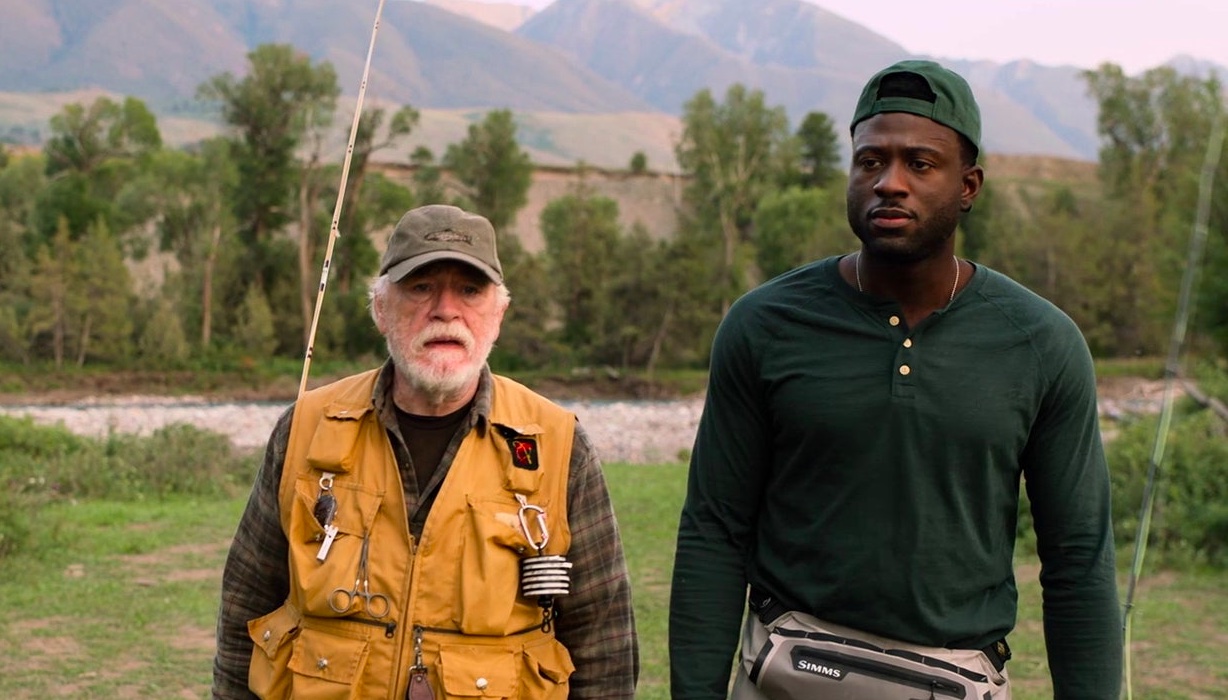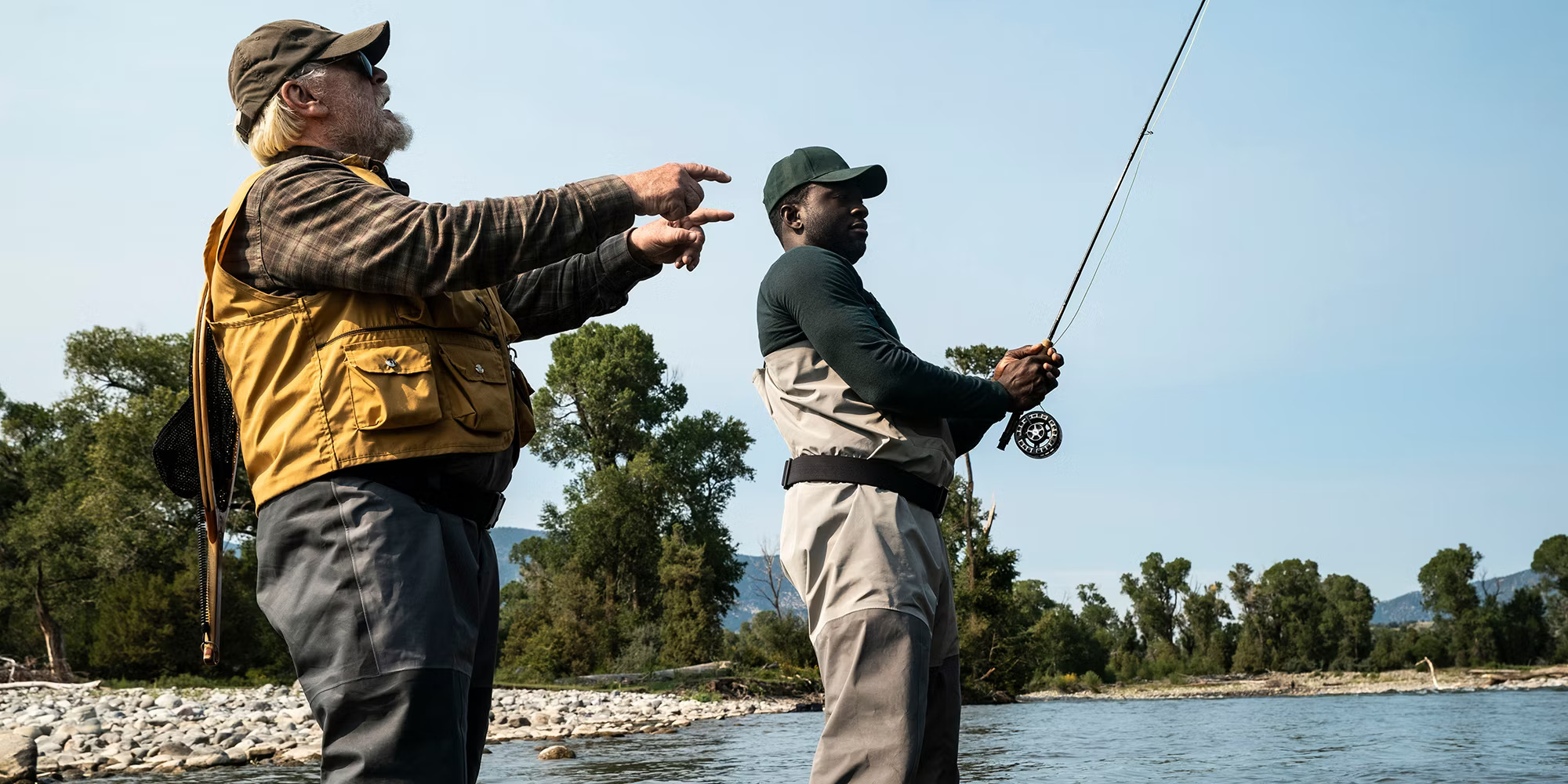In ‘Mending the Line,’ an injured soldier comes home after losing a lot of his friends during a mission and falls into a pit of despair that feels impossible to come out of. Sinqua Walls plays the role of Afghanistan war veteran John Colter, who has to find a way to convince his superiors that he is ready for active duty. However, things are not so simple. Apart from his physical injuries, he also has to prove that he is mentally fit. For this, he is advised to pick up fly fishing under the tutelage of another war vet.
The story focuses on John’s unexpected friendship with his tutor, Ike Fletcher. Apart from the chemistry between them, Walls’ heartfelt portrayal of the trauma that John processes makes him come across as someone plucked right out of real life. Is he based on a real person? SPOILERS AHEAD
The Fictional John Colter is Rooted in Reality
‘Mending the Line’ is based on the original screenplay written by Stephen Camilo, who was inspired by his father’s experiences following the Vietnam War and his own interest in fly fishing to write a fictional story that combines the two. In it, John Colter, a Marine who returns home after getting injured during a mission in Afghanistan, is a fictional character whose journey becomes the catalyst to push the story forward.

Considering how important John’s arc and his character development are, the writer, along with the film’s director, wanted to bring a realistic experience to the audience. Instead of making something up by themselves, they decided to talk it out with the people who had actually seen war and been in the shoes of their characters. They didn’t reveal the name of the subject but mentioned that it was someone who had served in the U.S. Army with whom they talked about his experiences, especially after he was sent home.
The man revealed that there are two types of healing a soldier has to go through. They have to heal physically, but more importantly, mentally. While the physical wounds heal over time, mental wounds often take much, much longer. And it is based on a person’s mental health that the upper brass decides whether or not to let them back in combat. He also revealed that often, in such situations, the traumatized soldier is more eager to go back.
The transition period can be hard for people who are having a tough time mentally but won’t accept it, even though their situation is pretty clear to everyone around them. The soldier revealed that he, too, had been eager to go back to active duty, ignoring his worsening mental health and refusing to accept that he needed a lot more time to heal. The filmmakers held on to this thread of the story and used it to weave a narrative for John Colter.

The filmmakers also got in touch with the U.S. Marine Corps Entertainment Liaison Office and were glad to hear that they were ready to partner on the film. This allowed the filmmakers to have experts and their insights, especially when it comes to the finer details, like the tactical details, the rough edges of the script, and the right terminology. Additionally, the filmmakers were given access to Camp Pendleton, the real-life simulator with an Afghan setting used during the training of the soldiers, to film the scenes in the movie pertaining to Afghanistan.
When Sinqua Walls was cast for the character, the filmmakers were certain that he had the range to focus not just on John’s Marine side, which needed him to come across as exceptionally tough, but also on his more vulnerable side, which was more important to the story’s core. In addition to this, Walls also got fly fishing lessons in preparation for the role. His hard work shows in his emotionally potent performance, which brings his fictional character closer to reality.
Read More: Mending the Line: Every Filming Location Explored


You must be logged in to post a comment.